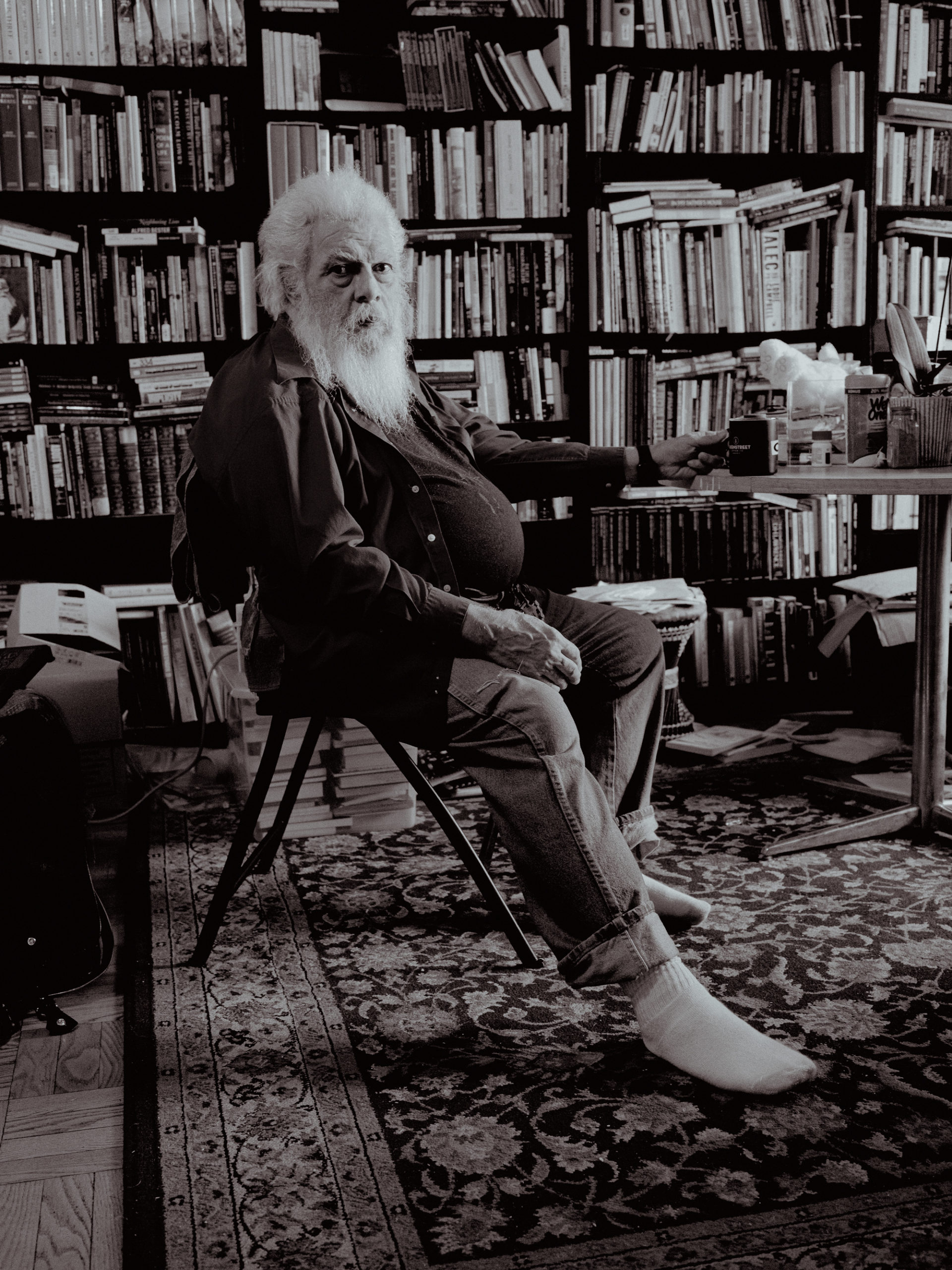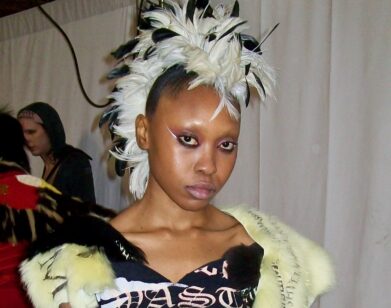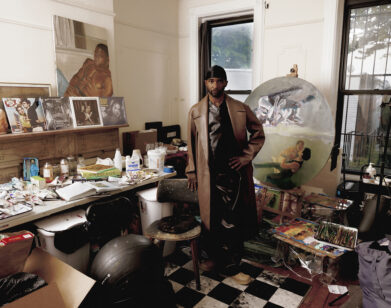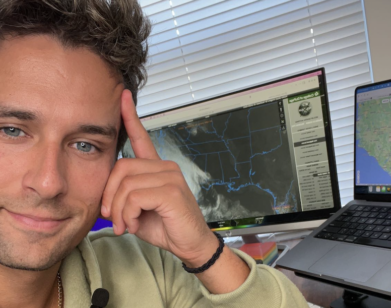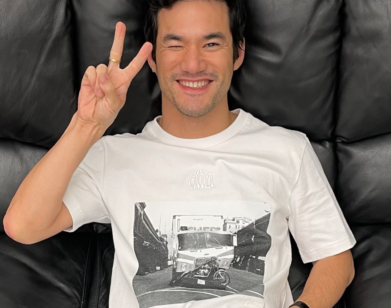literature
Samuel R. Delany on Street Wisdom and Cruising’s Golden Age
The book has been written on American gay cruising, and its author and prime practitioner is Samuel R. Delany. Or really, that should be books plural, as the pioneering 79-year-old writer (of science fiction, of short stories, of essays, and of criticism; an all-around gay hero of letters) has included the art and technique of cruising in many of his narratives. Cruising is obviously not a 20th-century phenomenon. And yet, Delany’s seminal tome, Times Square Red, Times Square Blue (two distinct essays first published as a unit in 1999) captures the desire lines and exquisite, fragile freedoms of sex in the public space by taking as a case study the stomping grounds that the writer knew well: the streets and theaters of Manhattan’s 42nd Street area, where men of all ages, classes, and races intersected with a shared purpose. Delany, a New York native, captured the vital, lived history of the urban stretch right at the moment it was being systematically dismantled (and whitewashed into the family-friendly capitalistic tourist hub that it has become for most of the 21st century).
Delany gets it all down—the seats, the films, the theaters, the economics, the moves, the men. Those days feel very long ago, but also, suddenly, potentially here again. Since the end of the tight restrictions from COVID-19 and the celebratory feeling of a new era running through the streets, cruising has returned to the urban landscape. Delany, who now resides in Philadelphia, is no longer an active participant. But a younger generation seems to be finding its own corners of desire in the city, inspired in part by Delany. The Philadelphia-based painter Jonathan Lyndon Chase remembers first spotting the legendary author “in suspenders and a white beard” in the gay bookstore Giovanni’s Room at age 19. “We smiled and said hello to each other, and he left,” Chase recalls. The ever-prolific Delany (or Chip as he’s known to his friends) has just finished up a new collection of short stories, and has a second volume of essays on writing slated to be out at the end of the year. He’s also the subject of a behind-the-scenes look at his work in the book On Samuel R. Delany’s Dhalgren, out this September. Recently, Delany took time from his hectic schedule to talk to Chase about the good old days, which now, hopefully, seem new again. – CHRISTOPHER BOLLEN
———
JONATHAN LYNDON CHASE: Recently I was reading the book Duets, which is a conversation between you and one of my favorite artists, Freder- ick Weston. In it, you mention that the first time you went to Times Square in the late ’50s, you actually skipped church to go.
SAMUEL R. DELANY: I was in the process of giving up on church for good. I started out as a choirboy. I was also an altar boy. And I also wanted to get laid in the worst way. I went off, in a suit, tie, the whole bit. Did I know how to cruise? No. I think I was 14 or 15. So instead of going to church, I got on the subway and went to 42nd Street. There wasn’t much going on. But there used to be something called Hubert’s Museum in Times Square, which was like a flea circus, like the sideshow of a circus. They had fat ladies and various sundry freaks on display. You pay 25 cents and go down into it. I was standing there and suddenly I felt somebody’s hand next to mine on the rail. I looked over and saw a very nice-looking Black kid who must have been about 16 years old. And I thought, “Huh, this is it.” But I didn’t know what to do. We smiled at each other and then he turned and left. And I thought, well, maybe he’s upstairs waiting for me, but I don’t want to be too eager. So I waited about two minutes and I went upstairs and, of course, he was completely gone. He decided that I wasn’t coming. But I knew I had come to the right place, and I was beginning to learn I had no idea how to negotiate it. Then I went back up to Harlem. It was a strange experience which I will never forget.
CHASE: Were you nervous?
DELANY: Kind of, because I’d never done it before. I’d only sort of absorbed, by street wisdom, that this was where it happened. By 23, I was very familiar with the place. You do a lot of growing up between 13 and 23.
CHASE: It sounds like your introduction was through physical contact. When a lot of people think about cruising, they think of eye contact. Can you speak about eye contact as communication?
DELANY: I remember when I was 19 or 20, going down to the Williamsburg Bridge. I had just gotten married at the ripe old age of 19, and my wife was 18. We were very open. She knew I was gay by that time. I said, “You know I’m gay?” And she said, “Of course, you’ve taken me cruising with you,” which I had. We lived on East 5th Street, and you walked a little farther down Houston to Delancey Street, and you could walk up onto the Williamsburg Bridge which was very, very different than it is today. It had a raised porch where you could look out over Delancey Street. That was a heavy cruising area, but especially when it got dark. There would be a bunch of dishy queens camping it up near one of the railings, while people were walking back and forth. I remember somebody going by me and giving me a hard cruise. I’m walking by, looking back, and he was still looking at me, and the first thing I thought was, “Oh, this is what Hart Crane’s poem ‘The Bridge’ was all about.”
CHASE: You wrote about Times Square in your two-part essay Times Square Red, Times Square Blue [1999].
DELANY: That was at the end of another century. At that time there were porn theaters, and the best ones were in the 42nd Street area. The most famous ones were the least interesting. Everybody talks about the Adonis. Nothing was going on there. But there were others, like Cameo and the Capri and the Venus, which were the kinky ones. There was even one that was advertised as a sex theater called the Arrows, which would cost a lot of money. My partner of the last 31 years, Dennis, and I used to go to the theaters, but at different times of the day. He would go at night, and I would go during the day, so we never met. He was homeless and used to sell books on 42nd Street on a blanket. That’s where we met. There’s a book about it, a graphic novel called Bread & Wine [1999].
CHASE: A friend of mine, the poet Jamal Jones, gifted that book to me. It’s such a beautiful story, so raw and real. Cruising and the whole landscape of New York at that time was so different than it is now.
DELANY: That whole period came to a very sudden end in October 1995. There are those strange people who think Giuliani was a good mayor. He was a total monster, and instrumental in closing that off. One day, the ticket booths were chained up. Dennis used to quip that Giuliani destroyed our sex life, which is an exaggeration. We found ways, but it was nice to have someplace to go that wasn’t your house. If you were looking, you could find someone to have sex with. Or you could bring someone you knew to have sex there. There was a place on Third Avenue called the Variety Photoplays. When I started going it was 49 cents to get in, and then it went up to 59 cents, and then it went up to $1.25. They put a sign up that said, “We apologize to our patrons, but let’s face it, at $1.25 we’re still a bargain.” Even when they changed the theaters up, it was like 5 dollars and that was still relatively reasonable, to spend seven hours and have sex five or ten times. You often had regulars there, too. You had people that you had sex with once, people you had sex with every time you saw them, and people you met regularly at ten o’clock on Saturday morning. And if you liked them, you could have these relationships for six or seven years, and you never knew their last name, which is what people want.
CHASE: Do you still have lots of friends from that time?
DELANY: No, not a lot. In fact, do I have any? No, I don’t. For one thing, I live in Philadelphia now. When I got here, there were three theaters like that. There was the Forum, which was farther out, and there was the Sansom Street theater, which was kind of in Philadelphia’s Tenderloin district. Samson Street outlasted the ones in New York, maybe by a decade. The amount of violence that went on in any of them was minimal. People didn’t go there for violence, they went to have a good time. There were those who wanted to sit back and scratch themselves and smile when you passed, and there were those who said, “You look nice, let me get down here and see what I can do for you,” which is what I did. I am a veteran cock sucker and I am proud of it. How do you define cock suckers? We are the people who never get AIDS, it’s as simple as that. We may occasionally get the clap, we may occasionally get syphilis, but AIDS is one thing we’re not going to pick up. And that’s a nice thing to know.
CHASE: I wanted to ask you about coming into the name Chip. Did you become Chip during your cruising?
DELANY: My father was Samuel Ray Delany Sr. and I was Samuel Ray Delany Jr., and my maternal grandfather who lived with us for a while was Samuel Hugo Boyd. So there were a lot of Sams running around in the kitchen. My father was big Sam and I was little Sam. I hated being little Sam, and I did not get along well with my father, or rather, he refused to get along well with me. I was not the kind of kid he wanted. He wanted a normal kid who loved baseball and wanted to go hunting, and I was a brainy kid who wanted chemistry sets and to read about relativity and atomic energy. So when I went on my first year at summer camp, the counselor had us all lined up at our tents, and said, “What is your name, young man?” “Belford Lawson the third.” “Well, what do people call you?” “Stinky.” And he gets to me, and I said, “Samuel Ray Delany Jr.” He said, “And what do people call you?” I thought, nobody knows me here, I can tell these people anything. And I said, “Everybody calls me Chip.” He nodded and said, “Chip,” and moved on to the next.
CHASE: How do you feel about sex apps like Grindr or Growlr? Do you think it’s different from cruising?
DELANY: I once used Scruff. I met a very nice guy and we had very good sex, even though he was 20 or so years younger. I ended up at his place. He had the worst bathroom I’ve ever been in in my life. You could not tell the hand sink from a toilet.
CHASE: My god! What was going on?
DELANY: After the first round he said, “Let’s go to the bathroom and do it again.” Nothing surprises me, but I did think, this is hard. This is not where my kinks go. There was something about the bathroom that turned me off. A different bathroom and I might have tried it again. I have a friend on the West Coast who says he only uses Scruff when he’s visiting other places, never when he’s home. I think he has the right idea. Also, all of these apps are better to use if you drive, and I don’t.
CHASE: Did you have a preference for daytime or nighttime when you were cruising?
DELANY: No. One of the nice things about the film houses was that they were usually open 24 hours a day. Maybe there was a three-hour shutdown period for cleaning. And New York was a 24-hour city. There were always people looking for food at three or four o’clock in the morning and there were people who were looking for sex at all hours of the day and night.
CHASE: What kind of smells do you associate with cruising?
DELANY: I did it in so many places that I don’t think it had particulars. I had a fondness for garages, where auto mechanics work. The particular smell is of people working on a car, and if they wash their hands, they still bear this smell. And if they’ve been playing with their cock, it retains a bit of that.
CHASE: Do you have a taste association?
DELANY: Taste is a big part of it. There was a time when I thought the best people tend to be a little saltier. Somebody that tastes like they’ve been doing something. There is nothing nicer than a nice uncircumcised cock, and you can get your tongue on the skin and all that nice sort of stuff. My father was not circumcised and my mother was somehow convinced that the thing to do was to circumcise her kids because the doctors were pushing circumcision. I remember always thinking that I’d been short-changed, or short-skinned as it were, because of that. My first long-term lover wasn’t circumcised, and Dennis and I both are. So it works out.
CHASE: I myself have all my meat.
DELANY: I’m very glad we’re finally getting to the point where we’re let- ting that go. The army was pushing it. All these guys would join the army, and somehow they got out and had lost their skins. Often they were unhappy about it.
CHASE: Thinking about the marriage between domestic private space with public space, I’m curious: What were cops like at that time?
DELANY: At the beginning of the first scene of your novel The Mad Man, the bored cop runs into a john on Staten Island and says, “Alright kid, get out of here,” which is to say that, at a certain point they had lost their moral interest. Most of the time people didn’t get busted. But I used to say that the occasional fines you found yourself with were random taxation for uses of the facilities. Every five or six years you got to pay $50 or $75 or $125 and then you wouldn’t be bothered for another year or so. Most of the time you weren’t bothered, and at the worst of times you were just told to move on.
CHASE: Have you seen Cruising [1980], the movie starring Al Pacino?
DELANY: It’s terrible, vicious, and bad. It’s a well-made, evil movie. And it’s the one thing that doesn’t really happen. It’s got some funny lines like, “Hips or lips?” which I still remember. I’ve never heard anyone say that in my entire life. When I saw the film, about a third of the audience just burst out laughing at that line, and it’s supposed to be serious.
CHASE: Why do you think some people’s heteronormative outlooks are so threatened by cruising?
DELANY: It’s a combination of jealousy—we’re not allowed to do it, so why should you be able to?—and the whole mythology that this vast population of people doing it are psychotic maniacs out to cut you up into little pieces. The percentage of psychotic maniacs is just as low as it is anywhere else. I was sitting on Central Park West, which was a standard cruising place, when I was relatively young. This guy comes up to me—a big, smiling Black guy— and says, “Hey, what are you looking for tonight?” I said, “What do you got?” He smiled at me and said, “About 11 inches.” He had just gotten out of jail and was staying at the Endicott Hotel. We ended up going back to his place, and he was not lying about his endowment. It was the dullest sex I’ve ever had. He wanted a blow job, which I was perfectly happy to give to him, but he did not move, and as soon as he was finished he reached over and picked up a newspaper and began to read. I said, “Was that okay?” and he said, “It was fine, I could do that again.” And we did it again. The one thing he was not was a psychotic perv. He was just a guy who knew he was well hung and wanted a blow job. When I thought about it, as memorable as he was physically, he was just as forgettable emotionally. For him, a blow job was a bit better than beating off. He said, “I figured I’d go out to the park and find one of them boy- girls.” I was wondering, “Are you disappointed? Will I do?” But I was terrified because, was this going to be the guy who decides to cut me up into little pieces and hide them in plastic bags all over the city? The answer was no. There may be people like that, but they are very rare. And one of the things that heteronormativity is based on is trying to convince you that people like that are much more numerous than they are because that justifies, for them, not having the kind of sex that is often available for various people at various times at various places and in various social landscapes.
CHASE: Do you have advice for the heteronormative mindset or community?
DELANY: Relax and have fun. And start a club.


